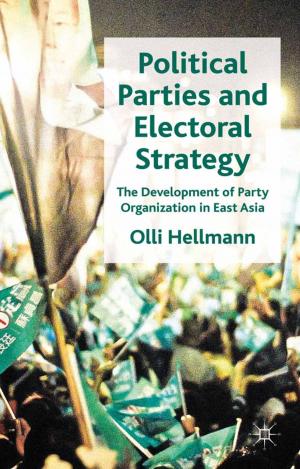Rethinking Unemployment and the Work Ethic
Beyond the 'Quasi-Titmuss' Paradigm
Nonfiction, Social & Cultural Studies, Political Science, Government, Social Policy, Social Science, Sociology| Author: | A. Dunn | ISBN: | 9781137032119 |
| Publisher: | Palgrave Macmillan UK | Publication: | October 7, 2014 |
| Imprint: | Palgrave Macmillan | Language: | English |
| Author: | A. Dunn |
| ISBN: | 9781137032119 |
| Publisher: | Palgrave Macmillan UK |
| Publication: | October 7, 2014 |
| Imprint: | Palgrave Macmillan |
| Language: | English |
While recent Labour and coalition governments have insisted that many unemployed people prefer state benefits to a job, and have tightened the rules attached to claiming unemployment benefits, mainstream academic research repeatedly concludes that only a tiny minority of unemployed benefit claimants are not strongly committed to employment. Andrew Dunn argues that the discrepancy can be explained by UK social policy academia leaving important questions unanswered. Dunn presents findings from four empirical studies which, in contrast to earlier research, focused on unemployed people's attitudes towards unattractive jobs and included interviews with people in welfare-to-work organisations. All four studies' findings were consistent with the view that many unemployed benefit claimants prefer living on benefits to undertaking jobs which would increase their income, but which they find unattractive. Thus, the studies gave support to politicians' view about the need to tighten benefit rules.
While recent Labour and coalition governments have insisted that many unemployed people prefer state benefits to a job, and have tightened the rules attached to claiming unemployment benefits, mainstream academic research repeatedly concludes that only a tiny minority of unemployed benefit claimants are not strongly committed to employment. Andrew Dunn argues that the discrepancy can be explained by UK social policy academia leaving important questions unanswered. Dunn presents findings from four empirical studies which, in contrast to earlier research, focused on unemployed people's attitudes towards unattractive jobs and included interviews with people in welfare-to-work organisations. All four studies' findings were consistent with the view that many unemployed benefit claimants prefer living on benefits to undertaking jobs which would increase their income, but which they find unattractive. Thus, the studies gave support to politicians' view about the need to tighten benefit rules.















